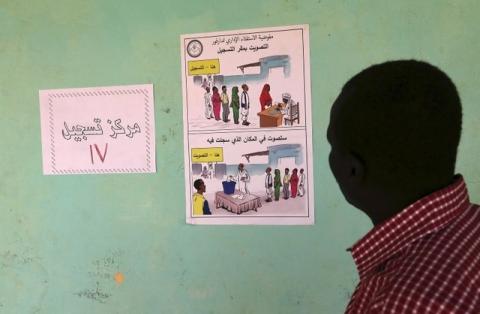Advertisement
Sudanese flee militiamen they say are razing villages in Darfur
AL-FASHIR, Sudan (Reuters) - When gunmen poured out of 40 trucks and opened fire "indiscriminately" in his village in Western Sudan, local farmer Adam Ishaq ran for his life, joining some 73,000 civilians forced from their homes in the Darfur region since January.
The new wave of internal refugees has added to the misery of a conflict that has displaced more than 2.5 million and killed up to 300,000, the United Nations estimates, since 2003 when mostly non-Arab tribes took up arms against the Arab-dominated government.
Although the violence has ebbed over the last decade, the insurgency continues and Khartoum has escalated attacks on rebel groups in the past year. Critics accuse government forces and their militia allies of pursuing genocide in Darfur. The government denies that and says it has no links to the militias.
"Militias stopped us on our way out and took away all our belongings," said Ishaq, 42, speaking by telephone after fleeing fighting in the Jebel Marra region of central Darfur, a remote and barren region of Western Sudan.
"We received very little help since we arrived in Kabkabiya (in northern Darfur) 24 days ago. We are hungry and in a state of fear," Ishaq said.
While tens of thousands have made it to camps, many remain trapped in conflict zones.
"We are stuck in Jebel Marra and we don't have food, all roads are blocked by militants and we would risk our lives if we decided to go out," a 43-year-old farmer who gave his name only as Taher told Reuters, adding that neighboring villages had been razed.
"We hear the gunshots outside and no one offers us help."
Al-Shafea Abdallah, a camp co-ordinator in Central Darfur, said fighting in Jebel Marra, which straddles three of Darfur's five states, was continuing to force people to the camps.
"It's a dire situation for the displaced," he said, adding that little humanitarian assistance was available.
The United Nations, whose mission in Darfur has often been criticized for failing to do enough to protect civilians, said that food, water, medical supplies and nutritional supplements were being provided to the newly displaced.
"The situation remains very fluid, and the United Nations and partners have teams on the ground working to assess the needs of those who have recently arrived," said U.N. Resident and Humanitarian Coordinator Marta Ruedas.
Beyond the camps, some of those who have fled Jebel Marra have headed to remote mountainous areas and are desperate for help, according to relatives who spoke to Reuters.
"They live in dangerous conditions and in constant fear," one said.
(Writing by Ola Noureldin; Editing by Michael Georgy and Robin Pomeroy)



















Add new comment